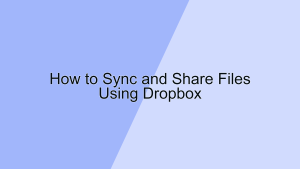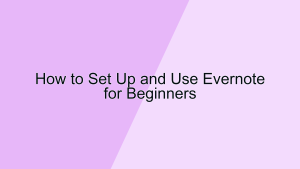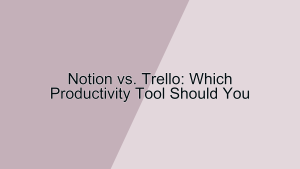Evernote vs. OneNote: Which Note-Taking App is Better?
In the realm of note-taking apps, Evernote and OneNote are two of the most prominent players. Both offer a robust set of features designed to help users capture, organize, and manage their notes, but they do so in different ways. In this article, we’ll compare Evernote and OneNote across several key aspects to help you determine which app might be the better fit for your needs.
1. User Interface and Design
The user interface and design of a note-taking app significantly impact your productivity and ease of use. Both Evernote and OneNote have unique approaches to their interfaces.
- Evernote’s Interface: Evernote sports a clean and minimalist design, which makes it easy to focus on your notes without distraction. The left sidebar contains shortcuts to your notebooks, tags, and recent notes, while the main area is reserved for note content. This layout is straightforward and efficient, allowing users to quickly access their notes and navigate between different sections. For example, if you’re working on a project, you can easily switch between your project notes and related research materials without losing your place.
- OneNote’s Interface: OneNote adopts a more traditional notebook approach, with sections and pages that mimic a physical notebook. The interface is divided into three main panes: notebooks, sections, and pages. This hierarchical structure makes it easy to organize information in a way that’s intuitive and familiar to many users. For instance, you can create a notebook for a specific course, divide it into sections for different topics, and add pages for lectures, assignments, and readings. This structure is particularly useful for students and professionals who need to manage large amounts of information in a structured manner.
2. Features and Functionality
Both Evernote and OneNote offer a rich set of features designed to enhance your note-taking experience. However, they each have unique strengths and capabilities.
- Evernote’s Features: Evernote is renowned for its powerful search capabilities and tagging system. You can tag notes with keywords and easily search for specific content within your notes, making it simple to find information even in a large collection. Additionally, Evernote supports web clipping, allowing you to save articles, images, and PDFs directly from your browser. For example, if you’re researching a topic online, you can clip relevant articles and save them to Evernote for later reference. This feature is invaluable for researchers, writers, and anyone who frequently gathers information from the web.
- OneNote’s Features: OneNote excels in its integration with other Microsoft products and its flexibility in note-taking. You can insert various types of content, including text, images, audio recordings, and even hand-drawn sketches. OneNote also supports real-time collaboration, making it easy to share notebooks with colleagues and work on them simultaneously. For instance, during a team meeting, you can take notes in OneNote and share them with your team members for instant feedback and collaboration. This feature is particularly beneficial for teams and organizations that rely on Microsoft Office tools for their workflow.
3. Platform Compatibility
When choosing a note-taking app, it’s essential to consider how well it integrates with your devices and operating systems. Both Evernote and OneNote are compatible with a wide range of platforms.
- Evernote’s Compatibility: Evernote is available on multiple platforms, including Windows, macOS, iOS, Android, and Web. This cross-platform compatibility ensures that you can access your notes from virtually any device, whether you’re at your desk or on the go. For example, you can start a note on your laptop, continue editing it on your smartphone during your commute, and finalize it on your tablet at home. This seamless experience is ideal for users who need consistent access to their notes across different devices.
- OneNote’s Compatibility: OneNote is also available on multiple platforms, including Windows, macOS, iOS, Android, and Web. However, it offers deeper integration with the Microsoft Office ecosystem, making it an excellent choice for users who are already invested in Microsoft’s suite of products. For instance, if you’re using Outlook for email and Teams for collaboration, OneNote integrates seamlessly with these tools, allowing you to embed emails, share notes during meetings, and sync tasks across different applications. This integration enhances productivity and streamlines your workflow within the Microsoft environment.
4. Pricing and Subscription Plans
The cost of a note-taking app can be a deciding factor, especially if you’re considering premium features. Both Evernote and OneNote offer free and paid versions with varying levels of functionality.
- Evernote’s Pricing: Evernote offers a free basic plan, which includes essential features like note-taking, web clipping, and basic search functionality. However, the free plan has limitations, such as a monthly upload limit and restricted device syncing. Evernote also offers two premium plans: Evernote Personal and Evernote Professional. The Personal plan includes features like offline access, increased upload limits, and advanced search capabilities, while the Professional plan adds business-oriented features like team collaboration, task management, and more extensive integration options. For example, if you’re a freelance writer, the Personal plan might suffice for organizing your research and notes, whereas a project manager might benefit from the Professional plan’s collaboration tools.
- OneNote’s Pricing: OneNote is part of the Microsoft Office suite and is free to use with basic features. However, to unlock advanced features and storage, you’ll need a Microsoft 365 subscription. The subscription includes access to other Office apps like Word, Excel, and PowerPoint, along with 1TB of OneDrive storage. This makes OneNote an attractive option for users who need a comprehensive suite of productivity tools. For instance, if you’re a student, the Microsoft 365 subscription provides not only advanced note-taking capabilities in OneNote but also essential tools for writing papers, creating presentations, and managing data.
5. Security and Privacy
Security and privacy are crucial considerations, especially when storing sensitive information in a note-taking app. Both Evernote and OneNote have measures in place to protect your data.
- Evernote’s Security: Evernote uses industry-standard encryption to protect your data both at rest and in transit. Additionally, Evernote offers two-factor authentication (2FA) to add an extra layer of security to your account. For instance, if you store sensitive client information or personal journals in Evernote, 2FA ensures that even if someone gains access to your password, they’ll still need a second verification step to log in. Evernote also complies with various data protection regulations, providing peace of mind for users concerned about privacy.
- OneNote’s Security: OneNote leverages Microsoft’s robust security infrastructure, which includes encryption, 2FA, and compliance with international data protection standards. OneNote data is stored in OneDrive, which benefits from Microsoft’s security measures, including regular security audits and advanced threat protection. For example, if you’re using OneNote for business purposes, the integration with Microsoft 365 ensures that your data is protected by enterprise-grade security protocols. This is particularly important for organizations that handle sensitive information and need to comply with stringent security requirements.
Conclusion
Choosing between Evernote and OneNote ultimately depends on your specific needs and preferences. Evernote excels in its search capabilities, tagging system, and web clipping features, making it a powerful tool for researchers and writers. On the other hand, OneNote offers robust integration with the Microsoft Office suite, a flexible note-taking structure, and strong collaboration features, making it ideal for students, professionals, and teams.
Consider your workflow, the devices you use, and the features you prioritize when making your decision. Both apps offer free versions, so you can try them out and see which one best fits your note-taking style. Whichever you choose, both Evernote and OneNote are excellent tools that can help you stay organized and productive in your personal and professional life.












